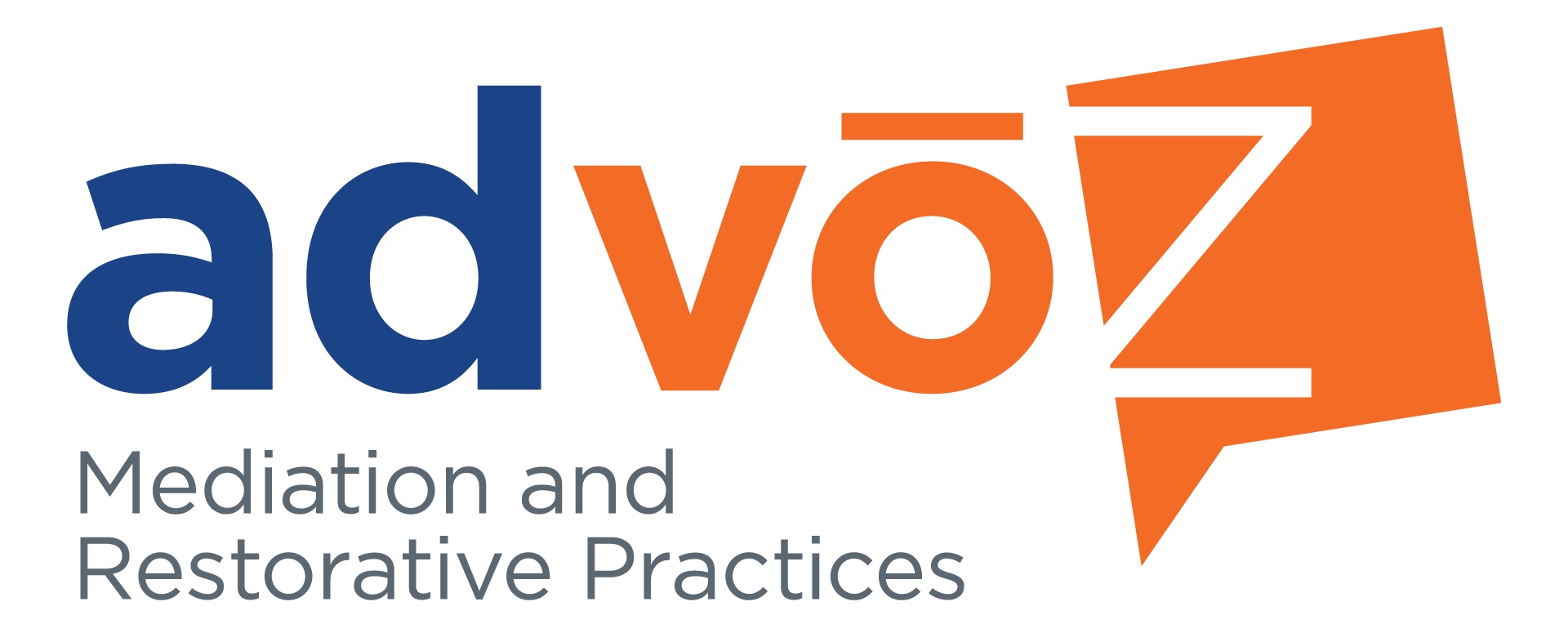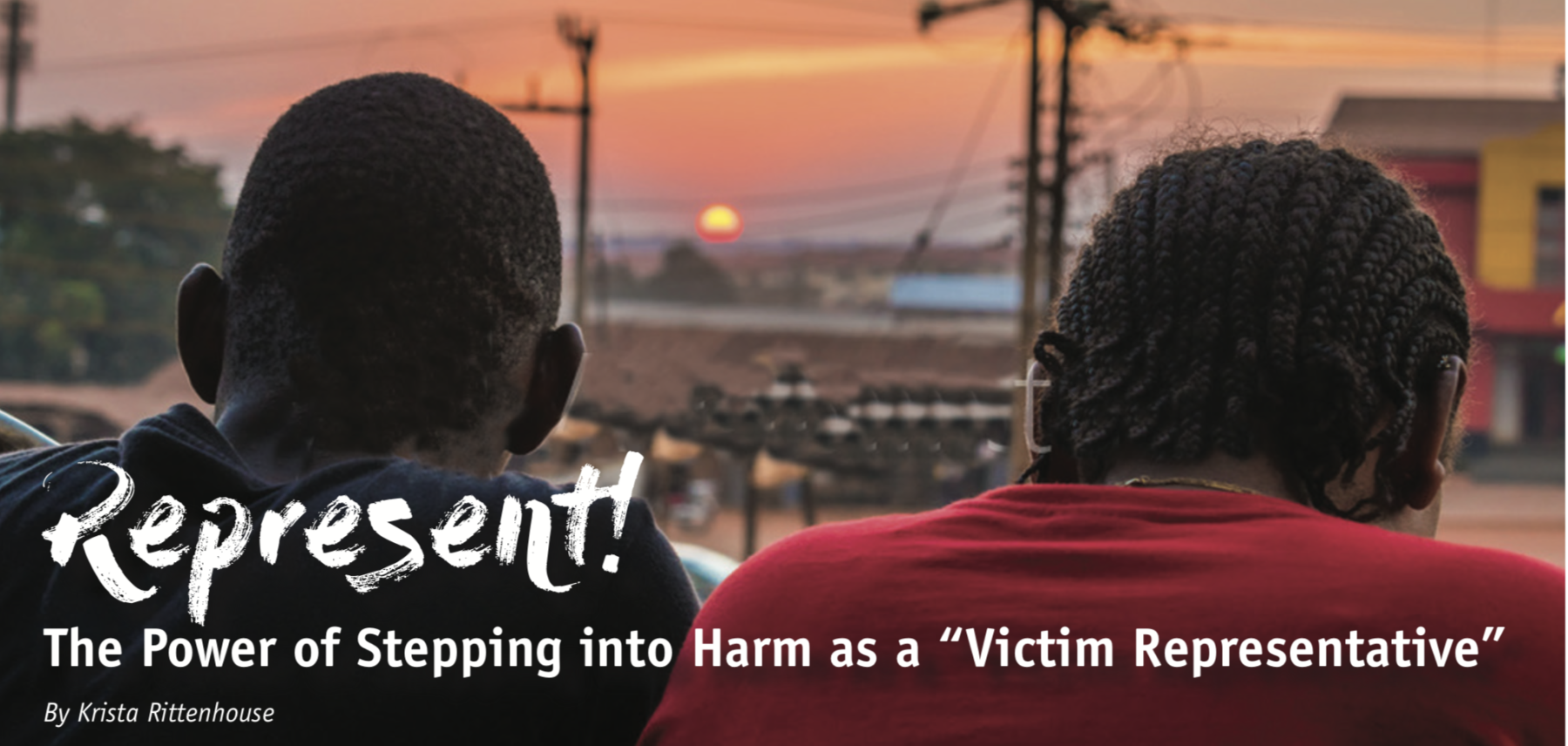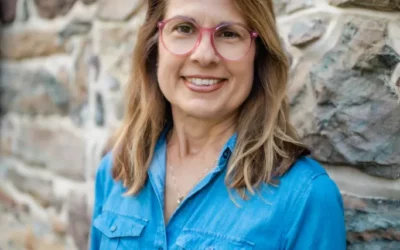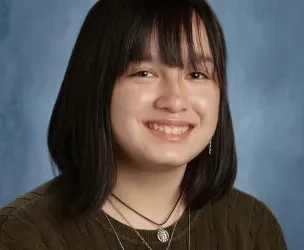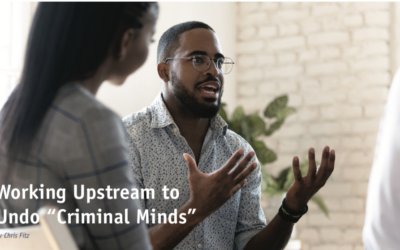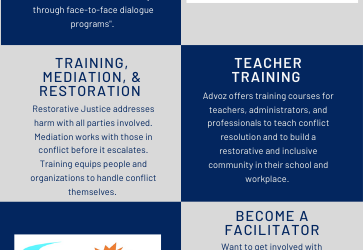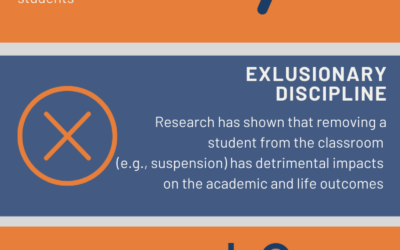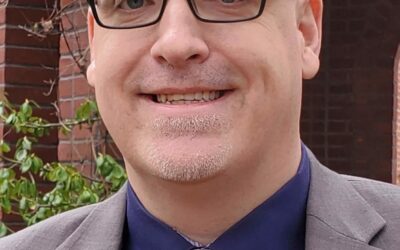By Krista Rittenhouse
Consider this question:
What are the odds of success for a young man of 16, who already has a record, dark skin, is in a single-parent home, and has already experienced prison? We can agree, and research shows that he has an uphill battle.
One thing we know about adolescent development is that youth need spaces where they “belong” and can feel competent. Many times, the aftermath of an offense leads to shame and punishment. But what if that offense could instead result in an opportunity to accomplish needs for belonging and competency? Restorative Victim-Offender Conferencing has that potential. However, when a harmed party chooses not to participate in that dialogue, it can halt that opportunity. Advoz is now extending that dialogue and restoring these otherwise lost opportunities in a creative way.
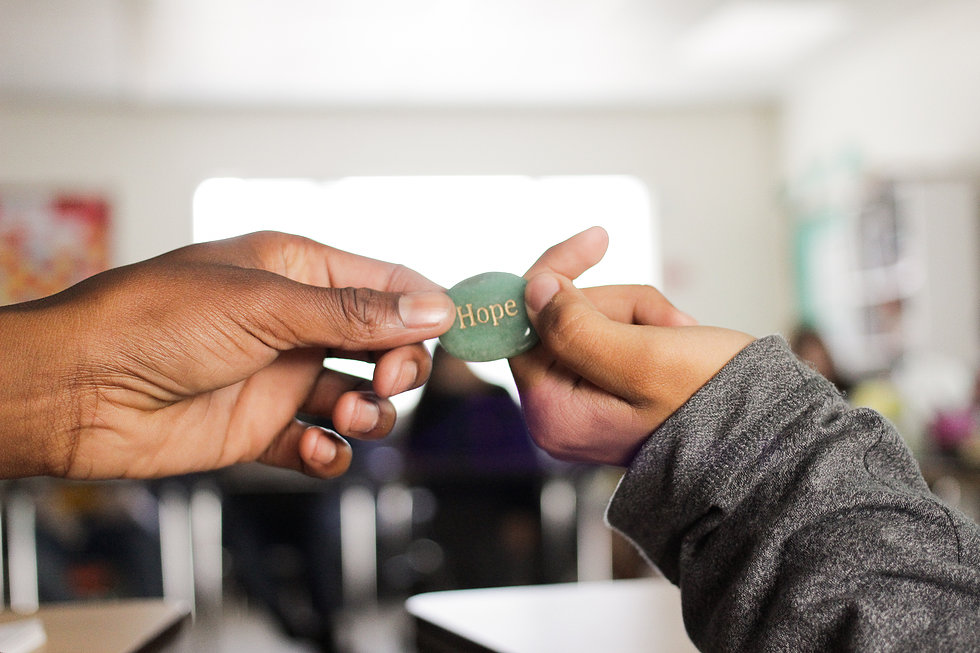
Recently, I met with the young man I described above. I will call him José. He was ready to take responsibility for the incident and to making things right through dialogue. But as commonly happens, the harmed party never responded to Advoz outreach.
Instead of ending the process, we invited José and his parent to meet with a community member as a ‘victim representative,’ who I will call Damien, to discuss ‘making things right.’ As it turns out Damien had a personal connection to José’s grandfather. Damien became misty-eyed as he told stories of the Grandpa’s mentorship and positive work in his community. José heard from a stranger that he belongs to a family where men have been positive, caring leaders in his neighborhood. José heard from a stranger that he has the potential to live into that legacy.
As this already powerful conversation was winding down, Damien mentioned working with community programs for younger youth. Almost as an aside, Damien asked if José might consider coming to speak with those youth about positive decision making. José agreed, already imagining how speaking for younger youth builds his own competency as a young man.
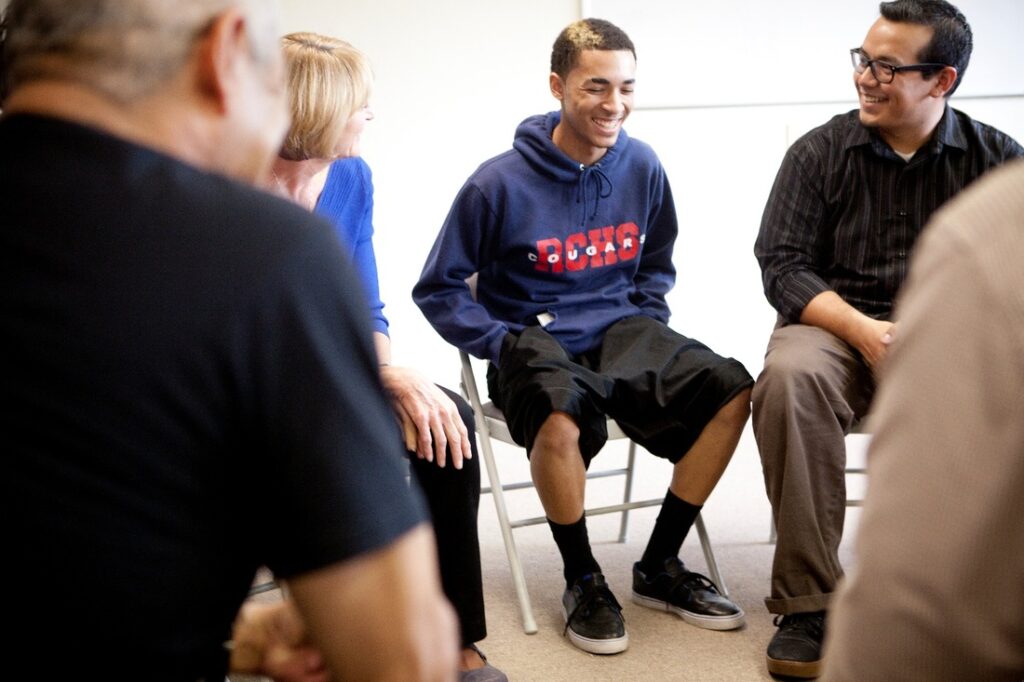
Since 2020, Advoz has been implementing this practice of a Victim Representative, inviting community members to speak about harm and increase accountability when the person(s) actually victimized do not participate. José is one of the 15 youth who have participated. More often than not, the sessions result in uncanny connections made between the representatives and the offending persons/youth and their families, like what happened between José and Damien.
Thanks to a grant from the Lancaster Osteopathic Health Foundation and other community supporters, Advoz has been able to add training for facilitators and community members to make this new step a reality. And we invite you to be part. Might you be called to enhance accountability and support for young people who have caused harm and want to make things right? Reach out to us at https://advoz.org/volunteer or email Krista@advoz.org.
